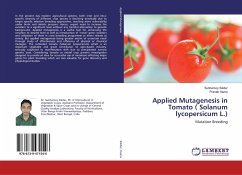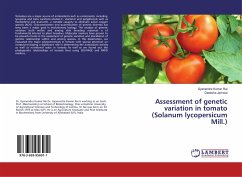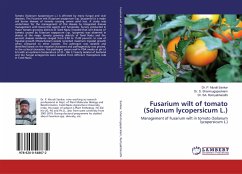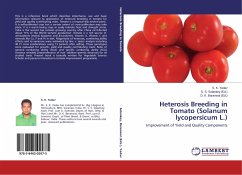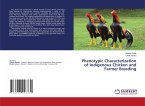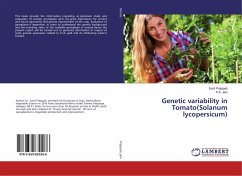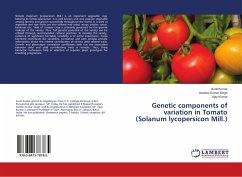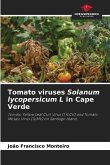In the present day modern agricultural systems, both inter and intra-specific diversity of different crop species is declining drastically due to target specific selective breeding approaches, resulting more vulnerability under biotic and abiotic pressure. Hence, urgent need to increase the variation to a significant level without any harmful alternation to genetic background. Applied mutagenesis is a useful tool for enhancing the variation to desired level as well as introduction of "novel" gene; isolation and utilization of them in cross breeding programme or direct release as variety. But applied mutagenesis being greater extent of uncertain need through study of effectiveness and efficiency of physical or chemical mutagen. The cultivated tomato (Solanum lycopersicum) which is an important vegetable and great contributor to agro-based industry, seriously subjected to manifestation shift due to precipitated narrow genetic base. Considering tomato as model crop present investigation designed to provide an idea for successful use of mutations affecting major genes for plant breeding which are also valuable for gene discovery and physiological studies.
Hinweis: Dieser Artikel kann nur an eine deutsche Lieferadresse ausgeliefert werden.
Hinweis: Dieser Artikel kann nur an eine deutsche Lieferadresse ausgeliefert werden.

